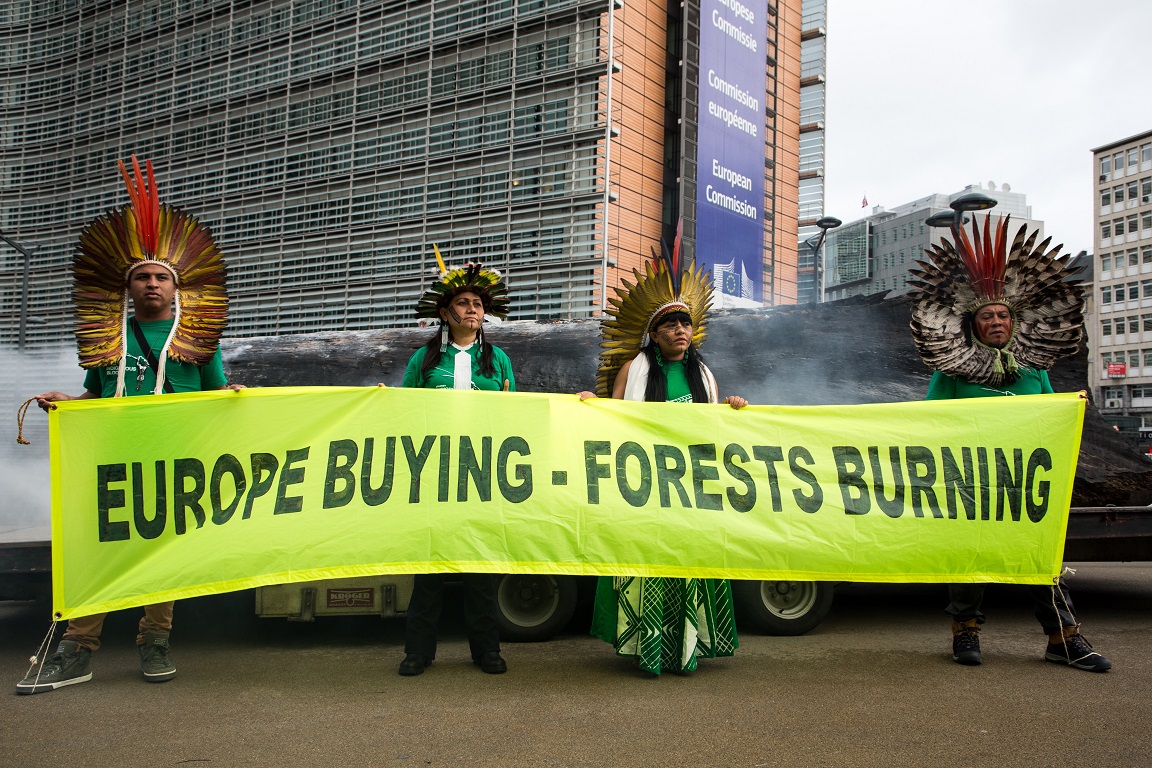NGOs urge EU not to ratify damaging trade agreement with the Mercosur block on back of new deforestation law
Alianza Cero Deforestacion | 23 May 2023
NGOs urge EU not to ratify damaging trade agreement with the Mercosur block on back of new deforestation law
On the occasion of the International Day for Biological Diversity and as European Union’s trade ministers meet this week in Brussels, 50 environmental and human rights groups from around the world expressed grave concern that the EU will use its new deforestation regulation to ratify the trade deal with Mercosur.
Since 2019, the mammoth trade agreement between the EU and Mercosur states (Argentina, Brazil, Paraguay and Uruguay) could not be ratified because of concerns it will exacerbate environmental crimes and human rights abuses.
In an open letter to the European Parliament and the Council of the EU, the organizations, including signatories from 21 countries, said the EU’s new regulation against deforestation (EUDR) must not be used to legitimize the EU-Mercosur deal.
«The current trade between both blocks must be changed radically as it is a root cause for deforestation, human rights violations and climate emergency and the trade agreement would just worsen the critical situation and actively counter the EU’s environmental policy because EU’s trade policy is designed to destroy the forests and its people”, says Tom Kucharz from Ecologistas en Acción.
An examination of EU-Mercosur trade relations reveals that the EU imports commodities annually from Mercosur countries with a deforestation footprint of 120,000 hectares, and that EU trade flows have been proven to be linked to violence against local communities. The trade deal will grant preferential tariff quotas to products like meat, sugar, rice and bioethanol, and reduce export duties on soy and biodiesel based on soy. In this way the agreement would perpetuate the Mercosur countries’ role as provider of raw materials and commodities to the EU while boosting deforestation, greenhouse gas emissions, as well as land and human rights conflicts in South America.
“The EU’s new regulation against deforestation has the potential to be a true game changer in the fight against deforestation. But without eliminating the root causes of deforestation -such as the industrial livestock industry or the biofuel production in the EU, the destruction of vital ecosystems such as the Cerrado, Chaco and Pantanal would increase”, underlines Anne-Sofie Sadolin Henningsen from Forests of the World.
“More trade of agricultural raw materials and under the control of agribusiness -as envisioned in the EU-Mercosur trade agreement- would create more land conflicts affecting the rights of Indigenous Peoples and local communities, who are the best guardians of the forests and biodiversity”, explains Valéria Santos from Comissão Pastoral da Terra (Pastoral Land Commission) and the National Campaign in Defense of the Cerrado in Brasil.






